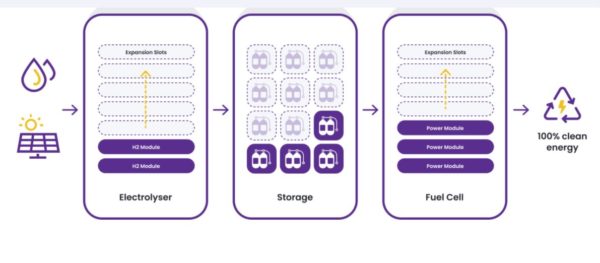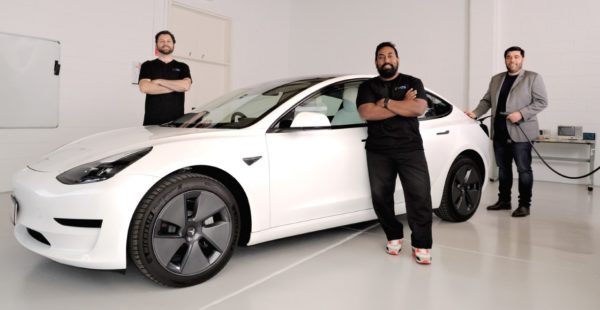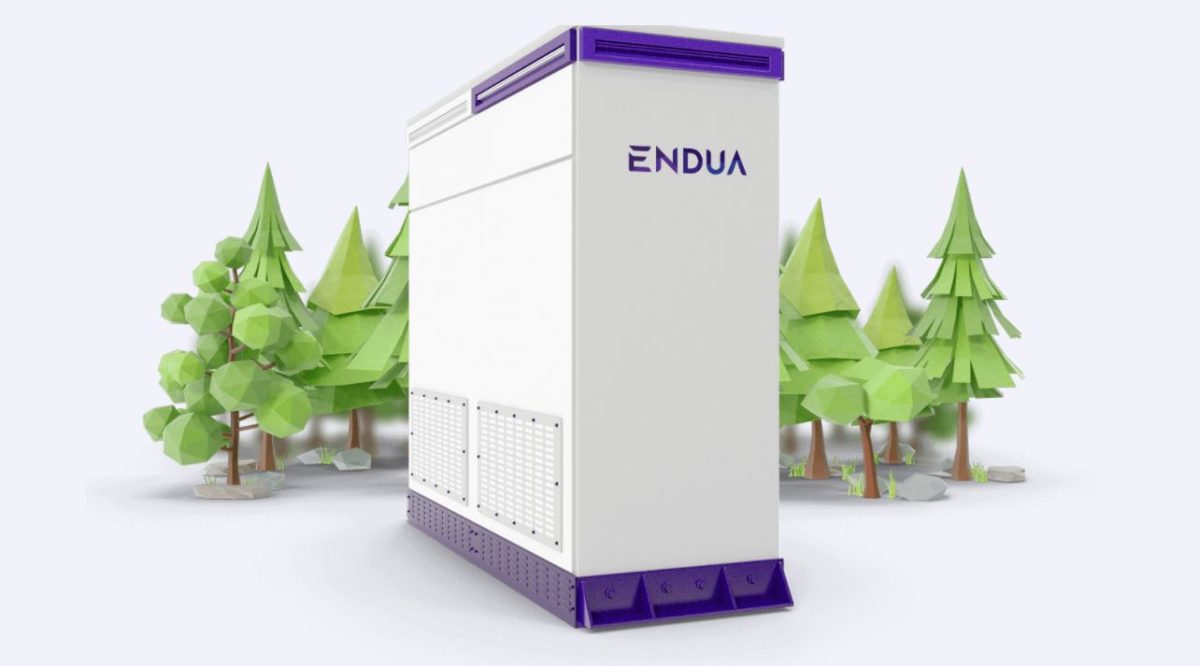Brisbane-based Endura, which plans to build modular hydrogen power banks using new electrolysis technology developed by the CSIRO, is among 22 Australian businesses which will share in more than $12.2 million in funding to commercialise and take their ideas to the world.
The Accelerating Commercialisation grants are part of the government’s Entrepreneurs’ Program designed to help Australian companies grow, commercialise innovations and gain further investments to enter new domestic and international markets.
Endua has received a grant of $998,269 to commercialise its hydrogen-powered energy storage solution designed to deliver sustainable, reliable and affordable power for the off-grid market.
Endua plans to manufacture clean power generation and storage in a modular power bank that can drive power loads of up to 150 kW in a single pack.
The company will use CSIRO electrolysis technology to produce hydrogen in its device which will store and deliver renewable energy, competing with traditional fossil fuel sources like diesel generators. Batteries serve as back up, but Endua’s goal is to deliver clean energy that can be stored in large quantities, enabling off-grid infrastructure and communities to have self-sustaining power sources.
Endua chief executive Paul Sernia, founder of EV charger maker Tritium, said the hydrogen-based technology will make it possible for regional communities, towns and industries like mines and remote infrastructure to become self-sustaining from the grid, using only renewables.

Image: Endua
“Hydrogen electrolysis technology has been around for quite some time but it still has a long way to go to meet the expectations of commercial markets and be cost-effective when compared to existing energy sources,” he said. “The technology we’ve developed with CSIRO enables us to make the cost more affordable compared to fossil fuel sources, more reliable and easily maintained in remote communities.”
Sales of Endua’s power bank technology will initially focus on the off-grid diesel generator market, which accounts for $1.5 billion of diesel and 200,000 tonnes of carbon emissions per annum.
Queensland-based electric vehicle (EV) charging start-up Evos Energy has also been recognised in the latest Accelerating Commercialisation grants, awarded $837,472 to help commercialise its energy management and delivery platform for electric cars.
Evos, which launched its AC22 Home Fleet Charger late last year, said the technology simplifies the car charging process, works across all EVs, and reduces energy and operating costs for EV owners.
The charger targets businesses providing charging for fleet vehicles as it’s designed for employees to be able to easily install at their homes, increasing reliability and simplifying the charging experience. The charger also features Evos’ patented energy management software, which identifies ideal charging hours during non-peak periods and controls the charge rate, speed and power to reduce costs.

Image: Evos
Evos said it will use the funding to commercialise and scale the platform, achieve global exports, create smart jobs, reduce the cost of EV charging and help businesses transition to carbon free transportation.
New South Wales company Biocarbon was also among the grant recipients, receiving $293,840 which will allow them to run a commercial trial of their technology which is designed to support green steel and help steelmakers to decrease their carbon footprint.
Biocarbon uses advanced manufacturing to produce renewable carbon and energy products for industrial applications. They have developed an innovative process to manufacture renewable carbon material to be used as a fossil carbon replacement in steelmaking.
The Entrepreneurs’ Program has provided 573 grants totalling more than $281 million to Australian businesses since it was established in 2014.
AusIndustry said the program aims to strengthen, grow, innovate and commercialise businesses by improving supply chain performance and improving capabilities to trade and export in global markets.
Businesses which are awarded an Accelerating Commercialisation grant must meet a comprehensive set of merit criteria, including how novel the project is, to be awarded up to $1 million in matched funding.
Energy Minister Angus Taylor said the grants will help home-grown companies grow, commercialise their products and gain further investments to enter new domestic and international markets.
“We are proud to support Australian companies take their innovative technologies and products to the next level through the commercialisation process,” he said.
“These latest projects are all great examples of Australian innovations – many across high-skilled manufacturing priorities – which have remarkable potential to improve the quality of our lives, create new jobs and support our economic recovery.”
This content is protected by copyright and may not be reused. If you want to cooperate with us and would like to reuse some of our content, please contact: editors@pv-magazine.com.









2 comments
By submitting this form you agree to pv magazine using your data for the purposes of publishing your comment.
Your personal data will only be disclosed or otherwise transmitted to third parties for the purposes of spam filtering or if this is necessary for technical maintenance of the website. Any other transfer to third parties will not take place unless this is justified on the basis of applicable data protection regulations or if pv magazine is legally obliged to do so.
You may revoke this consent at any time with effect for the future, in which case your personal data will be deleted immediately. Otherwise, your data will be deleted if pv magazine has processed your request or the purpose of data storage is fulfilled.
Further information on data privacy can be found in our Data Protection Policy.